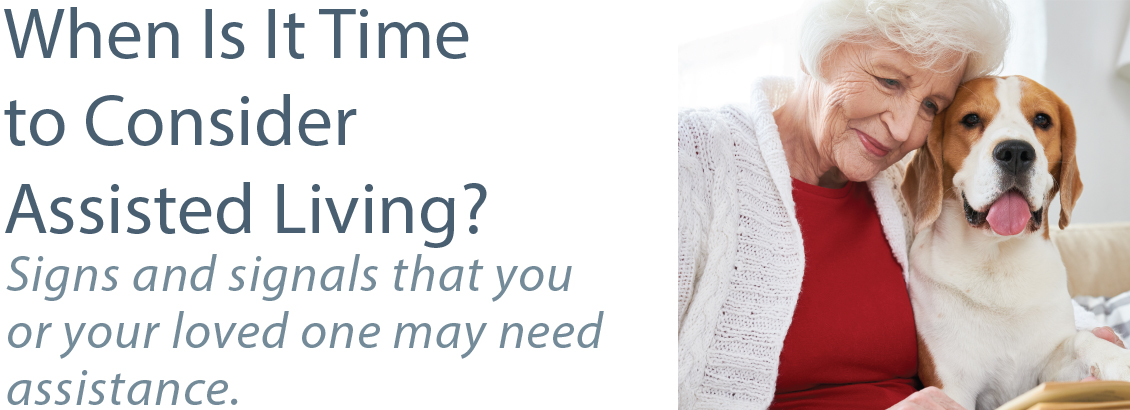Insights | Blogs

Everyone ages at their own pace and you cannot predict when a senior will need care and how much will be enough. It is difficult to know the progression of health for anyone. Health care needs that initially seem manageable can develop into more serious conditions requiring constant attention, possibly by professionals.
Signs to Watch For
The following are some common signs and signals that you or your loved one may need additional assistance with daily tasks and the care of professional caregivers. These situations can cause families and in-home caregivers health problems, financial troubles, relationship conflicts, or other issues. Knowing when it’s time for professional help is the first step to ensuring the safety and security of an aging senior.
- Multiple falls resulting in bruises, broken bones, or other injuries.
- Frequent hospitalization or visits to the emergency room due to unstable health.
- Declining ability to perform basic activities of daily living (grooming, bathing, dressing).
- Cognitive impairment
- Episodes of wandering away from home resulting in confusion or disorientation.
- Severe bladder and/or bowel incontinence that cannot be self-managed.
- Withdrawing socially or becoming less interested in engaging with others.
- Medical professionals have advised the need for more care or supervision.
- Responsibility of caregiving has inadvertently caused injury or health decline in the caregiver.
- Caregiving is taking a toll both an emotional and mental toll on the caregiver.
- Essential caregiving tasks have been so challenging that they are difficult to keep up with.
- Caregivers have developed recurring feelings of irritation, frustration or anger over minor things.
- Financial affordability of around-the-clock in-home care has become far too costly.
- You don’t have enough financial support or help from other family members to continue caregiving on your own, and you can’t afford more hours of professional in-home care.
- Your friends or colleagues are worried about your well-being and the people who care about you are encouraging you to explore other long-term care options.
If your loved one needs care that requires skills you don’t have, then it’s probably time for long-term residential care. If your own health is declining as a result of your caregiving, or if you need more assistance and can’t get it, then it’s time to consider in a retirement community with Assisted Living services. And if a senior is displaying hard-to-handle behaviors that pose a real danger to himself or herself (or others), then it is definitely time to identify a retirement community that is able to fulfill their day-to-day needs. Oddly enough many times when care is needed, it may be received differently than when rendered by a professional.
Areas of Assistance
If your family hasn’t lived through one of these situations yet, but is seriously considering allowing others to help them care for their loved one, then you may need assistance and guidance in one or all of these areas:
- Finding the appropriate care based on need, location and cost
- Once health care needs are determined can they be managed at home or are they better handled in a more professional setting
- Financial alleviation – cost is a big determining factor that needs to be understood before a successful plan can be put in place. Be aware of your limitations.
- Stress relief – the goal is for the plan to meet the needs, relieve stress and worry and stay within a budget. There is a lot to consider before you know what the viable options will be.
As we grow older, there are many things we cannot control, but we can be prepared to create an environment that keeps us comfortable and healthy. A senior living community that offers Assisted Living services is a new opportunity to live your best life while simultaneously providing solutions for an individual’s needs and lifestyle.

About Brazos Towers:
Brazos Towers at Bayou Manor has been Houston’s most trusted non-profit retirement community since 1963. Here, seniors receive all the support services they might ever need: Independent Living, Assisted Living, Memory Care, Skilled Nursing and Rehabilitation. This environment focuses on experiencing the most freedom, interesting engagement and personal independence possible, regardless of one’s capabilities.
About the Author, Michelle Watkins:
As Retirement Counselor, Michelle helps seniors successfully navigate their choices by better understanding the differences between communities and the services they offer.
Contact her at 713-660-5033 to schedule your complimentary retirement planning consultation or email michelle.watkins@houstonretirement.org.







